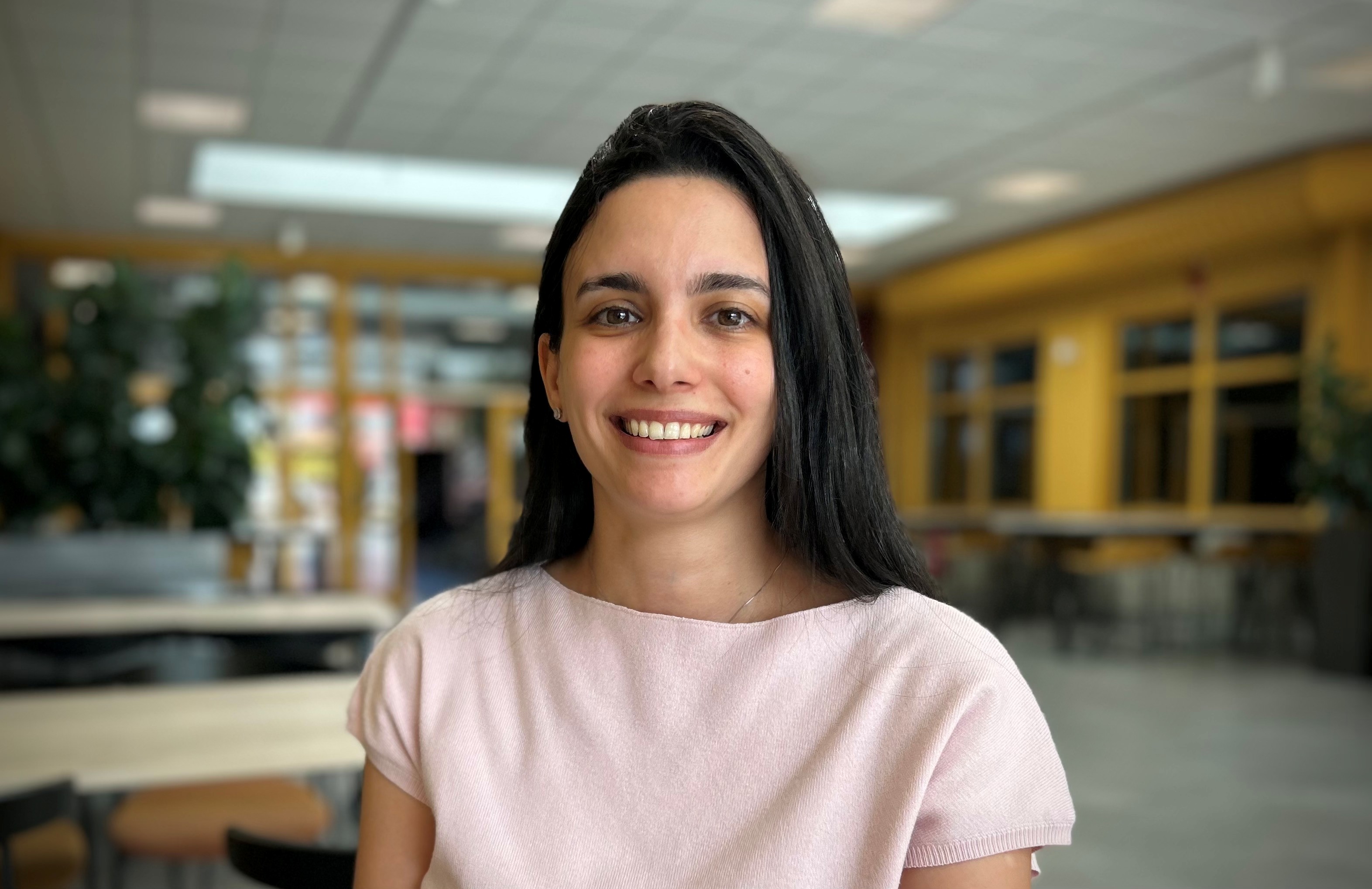
Aicha Maalej, PhD student at the School of Engineering (JTH).
“Industry must dare to trust AI”
Doctoral student Aicha Maalej wants to strengthen AI trustworthiness, which is her focus in the DELTA research project.
—It’s about developing AI systems that are not only more reliable but also more transparent about how they reach their conclusions.
It’s a committed AI researcher sitting at a table in the gallery of the School of Engineering. Aicha Maalej has studied engineering at university level for seven years in Tunisia, she was awarded the “best student paper” award earlier this year for her work on comparing different ways of calibrating probabilities in AI models at an international conference in Japan, and is on her way to London with the next “paper” after we meet.
As is often the case with AI research, a whole (and quite complex) world opens up when Aicha Maalej describes her work as a doctoral student in AFAIR. But at its core, it deals with something deeply human — trust. To dare to give in and take advantage of all the opportunities that come with the explosive development of AI, you must of course trust the technology, and understand how it works.
—We are working in two ways to increase trust in decision support. We are developing AI that expresses how confident it is in its recommendation. It is good to know that it is, for example, 85 percent confident that it is right. Trust increases further if it can also explain how it has arrived at that recommendation, and we are also working on new AI models that can tell this. Without a more trustworthy AI, there are risks both with blind overconfidence in the results or, conversely, a complete mistrust of these outputs.
A future in Sweden — and trustworthy AI
It seems we can thank Sweden's lakes, nature and tranquility for the fact that Aicha Maalej is now one of the researchers in the AFAIR profile. Aicha and her husband were inspired by Sweden’s reputation for high quality of life, its nature, and its culture. After learning more about the country through books and documentaries, they felt it was the right place to begin a new chapter. Today, her husband works as a pharmacist, while Aicha is pursuing her doctorate within the AFAIR profile at Jönköping University.
—We wanted to build a life here together. For me, the opportunity to join AFAIR was perfect — it allowed me to apply for this doctoral position and focus on research that makes use of large amounts of data. Her interest in AI began during her master’s studies in Tunisia, where her thesis explored how emotions can be identified based on how people type on keyboards. —It was fascinating to see how something as ordinary as typing data can reveal whether someone is happy, calm, or perhaps angry and typing more forcefully.That curiosity has since grown into advanced research on trustworthy AI. Within DELTA, she has worked on methods for calibrating probabilities and exploring concepts like counterfactual explanations, which help make AI predictions more trustworthy and understandable.—At first these ideas sounded complex, but it can be integrated and explained in a simple way, says Aicha Maalej who thinks that it is important — because the more people understand how AI works, the more confidently they can use it.It is in Sweden that she wants to stay, she and her husband have not regretted their move for a second.—I still have three years left as a doctoral student and I don't know what will happen after that — but it will be something in the field of trustworthy AI. That prediction is 85 percent certain, she says and laughs.


